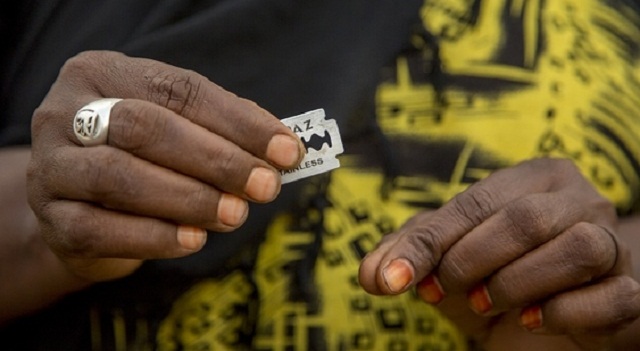
It’s estimated that 200 million girls and women alive today have undergone some form of FGM
Kampala, Uganda | THE INDEPENDENT | At least 70 girls from the Karamoja sub-region have fled to neighbouring Kenya for fear of being subjected to female genital mutilation-FGM. This is according to the Ministry of Internal Affairs.
Agnes Igoye, the deputy coordinator for the prevention of trafficking in persons at the ministry, says that several parents and traditional leaders have used the closure of schools to forcefully subject girls to FGM, something that has forced many to seek refuge in Kenya.
Uganda just like other countries has so far imposed two lockdowns in a bid to prevent the spread of Covid-19. The first one was imposed on March 18, 2020, and lasted up to the last quarter of the same year. However, schools have been largely affected and some classes have not resumed since last year which has kept several children at home.
President Yoweri Museveni closed schools again on June 6 this year after the second wave of Covid-19. Igoye said in the seven days they have spent in areas of Karamoja particularly in Amudat district, they have noticed FGM cases are skyrocketing even though they are yet to fully document the number of victims.
Igoye said in the few days they have engaged Amudat leaders both at the traditional and political level, as well as families, they have established girls who cannot withstand FGM cruelty have chosen to run for safety.
The internal affairs ministry officials have already contacted their counterparts in Kenya who have confirmed that over 70 girls have indeed crossed because they have seen their colleagues being forcefully subjected to FGM and they were also being witch-hunted to face the same.
“We still have children who have run away from home across the border. The 70 girls were talking about returning them but we need to first ensure they are protected from what they run away from. FGM is a harmful ritual,” Igoye said.
World Health Organization-WHO describes FGM as the partial or total removal of external female genitalia or other injuries to the female genital organs for non-medical reasons. According to WHO, the practice has no health benefits for girls and women but it is capable of causing severe bleeding and problems urinating, and later cysts, infections, as well as complications in childbirth and increased risk of newborn deaths.
At least 200 million girls and women alive today have been cut in 30 countries in Africa, the Middle East and Asia where FGM is concentrated. The most vulnerable group of FGM are young girls between infancy and age 15. Article 33 (6) prohibits laws, cultures, customs or traditions which are against the dignity, welfare or interest of women or which undermine their status. In addition, Article 44 adds that “no person shall be subjected to any form of ‘torture and cruel, inhuman or degrading treatment.”
Uganda also enacted an independent Act against FGM in 2010. The Act criminalizes the practice stating that neither consent nor any culture, custom, ritual, tradition or religion is a defence to the crime of FGM in Uganda.
To establish the impact of FGM as a result of Covid-19 lockdown, Igoye said they are pitching camp in Amudat and will base there to make investigations into the vice in other districts.
*****
URN
 The Independent Uganda: You get the Truth we Pay the Price
The Independent Uganda: You get the Truth we Pay the Price

